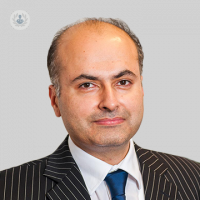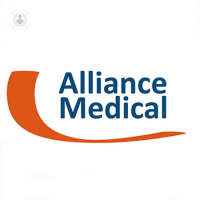Chest CT
Professor Waqar Bhatti - Radiology
Created on: 09-20-2016
Updated on: 09-18-2023
Edited by: Carlota Pano
What is it?
A chest CT scan is a radiological exam which produces detailed images of the bones and tissues inside your chest. It can be done with or without contrast medium, a liquid which gets clearer images from the scan.
What does it involve?
During the chest CT scan, you will be asked to lie down on a flat bed that passes into the CT scanner. It is important that you stay as still as possible in order to get a clear image. The scan takes around 5 minutes. The information gathered during the CT scan is then visualised by a computer. A CT scan is performed by a radiologist.

What is it for?
A chest CT scan is usually carried out when your doctor wants to verify whether or not there are any conditions which won’t show up properly on an X-ray scan. This scan is often recommended in case of:
- inflammatory disease (such as asthma)
- bronchitis that is unresponsive to treatment
- lung infections, such as pneumonia, pleurisy and tuberculosis (TB)
- lung autoimmune diseases
- pulmonary lesions originating from tumours
- pleural effusion
A chest CT scan can also help to clarify a number of cardiovascular conditions by looking closer at your pulmonary arteries.
How can I prepare for it?
If a contrast is used, you may be asked to avoid eating anything starting from six hours before the scan. You will also have a blood test in order to check kidneys and liver function, because it can be dangerous to administer a contrast dye if you have problems with your kidneys. If you’re on a medication for hypertension, you may need to stop taking it prior to the scan.
What does it feel like during the procedure?
A CT scan is completely painless. You might feel a heat sensation if contrast is used. The only thing you will hear is the machine’s noise while scanning.






